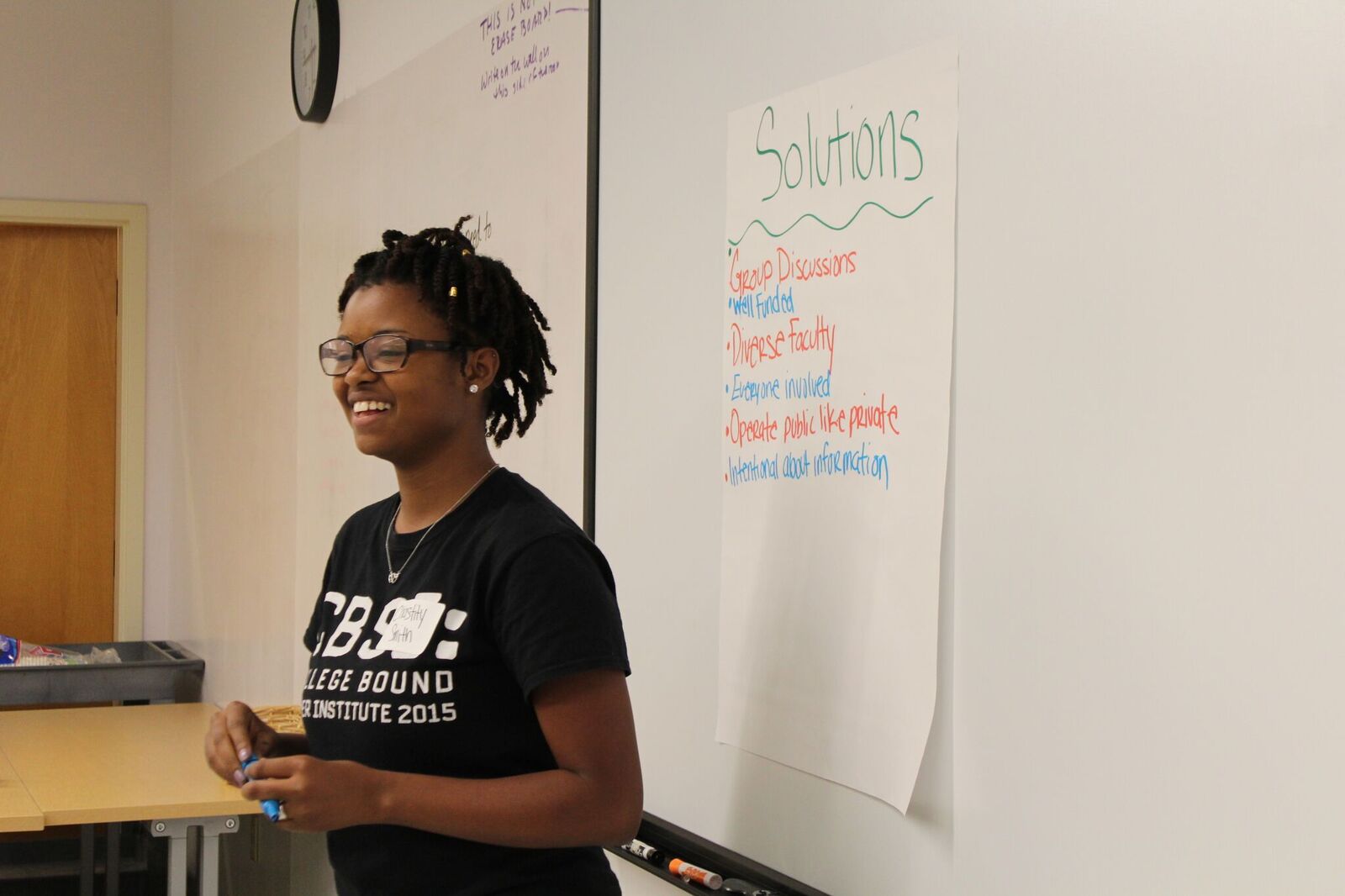The Coalition launched From Brown v. Board to Ferguson: Fostering Dialogue on Education, Incarceration, and Civil Rights in October 2015 to address one glaring contemporary legacy of the long history of racial discrimination in the U.S.: the education inequity faced by students of color. Sixty years after Brown v. Board of Education – which ended legal segregation in U.S. public schools – schools are often segregated in practice, with Black and Latino students facing unequal educational opportunities.
 A significant contributing factor to the racial achievement gap is the rate of Black and Latino students suspended and expelled from school. These groups represent more than 70 percent of school-related arrests and law enforcement referrals. The trend is so common it has become known as the “school to prison pipeline.”
A significant contributing factor to the racial achievement gap is the rate of Black and Latino students suspended and expelled from school. These groups represent more than 70 percent of school-related arrests and law enforcement referrals. The trend is so common it has become known as the “school to prison pipeline.”
With generous support from the U.S. Institute of Museum and Library Services, the three-year initiative brings together 11 Coalition members and their community partners to create dynamic public engagement programs focused on youth with the goal of fostering much-needed community dialogue on race, education equity, and incarceration in the context of civil rights history.
At a workshop in St. Louis, Missouri in May 2016,  Coalition staff and consultants helped participating sites create effective community programs that enable youth to engage peers in advocacy campaigns, grounded in history, around these vital issues. Since then, each site has been designing their own unique dialogue programs encompassing a range of approaches from visual art to theater.
Coalition staff and consultants helped participating sites create effective community programs that enable youth to engage peers in advocacy campaigns, grounded in history, around these vital issues. Since then, each site has been designing their own unique dialogue programs encompassing a range of approaches from visual art to theater.
As the program’s first full year comes to a close, we are delighted to share three videos of student participants at the Missouri History Museum (MHM) discussing what the project has meant to them. With their community partner, FOCUS St. Louis, MHM has created a program to assist youth in finding issues in their local community that can be used as catalysts to discuss the broader theme of education equity – such as a recent investigation that found elevated lead levels in the city’s poorer public school districts. In August, MHM led trainings with over a dozen students, helping them attain the skills, confidence, and historical knowledge they need to navigate what can be a very personal and contentious subject. In turn, as shown in the images here, students have already begun to facilitate dialogues, inviting mentors, teachers, and peers from their schools, churches, and workplaces to attend.
 “Programs like Brown v. Board to Ferguson provide an opportunity to empower youth with new information and the tools to effectively share that information with others,” explains Emily Underwood, Director of Community Programs, at MHM. “By providing a historical context for issues that continue to resonate strongly in their daily lives, they are able to dive into deeper conversations and more productively seek solutions. By teaching them how to frame a discussion, ask questions, and listen, they are developing the skills and the agency they need to bring these conversations to a wider community and truly become stewards of change.”
“Programs like Brown v. Board to Ferguson provide an opportunity to empower youth with new information and the tools to effectively share that information with others,” explains Emily Underwood, Director of Community Programs, at MHM. “By providing a historical context for issues that continue to resonate strongly in their daily lives, they are able to dive into deeper conversations and more productively seek solutions. By teaching them how to frame a discussion, ask questions, and listen, they are developing the skills and the agency they need to bring these conversations to a wider community and truly become stewards of change.”
Please click below to view the videos. For more information about the project, please contact Project Coordinator Tramia Jackson at tjackson@sitesofconscience.org

